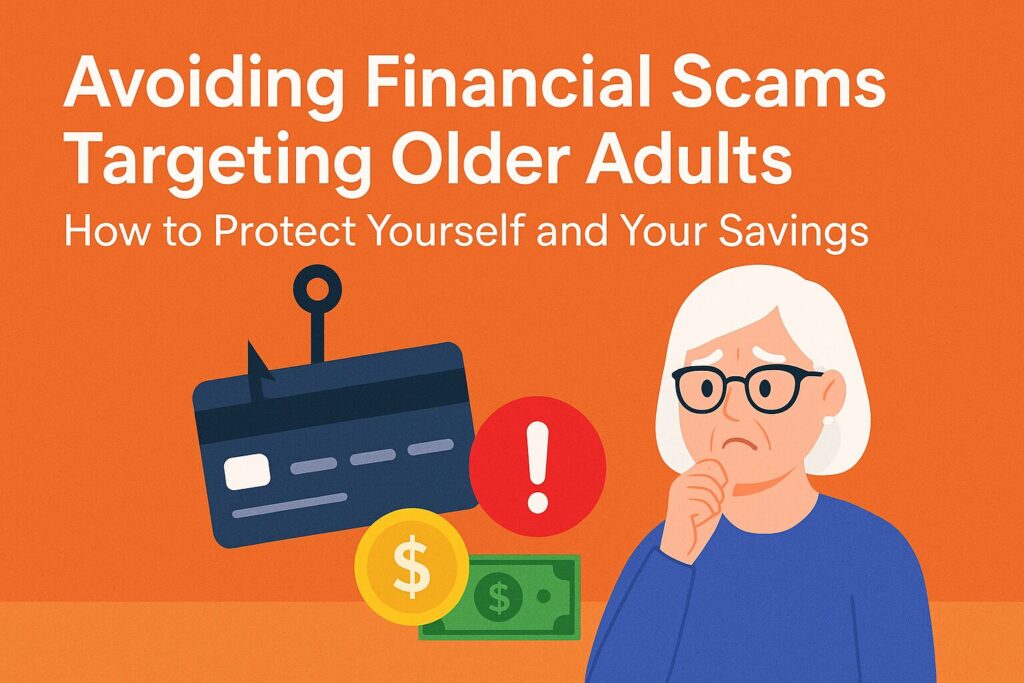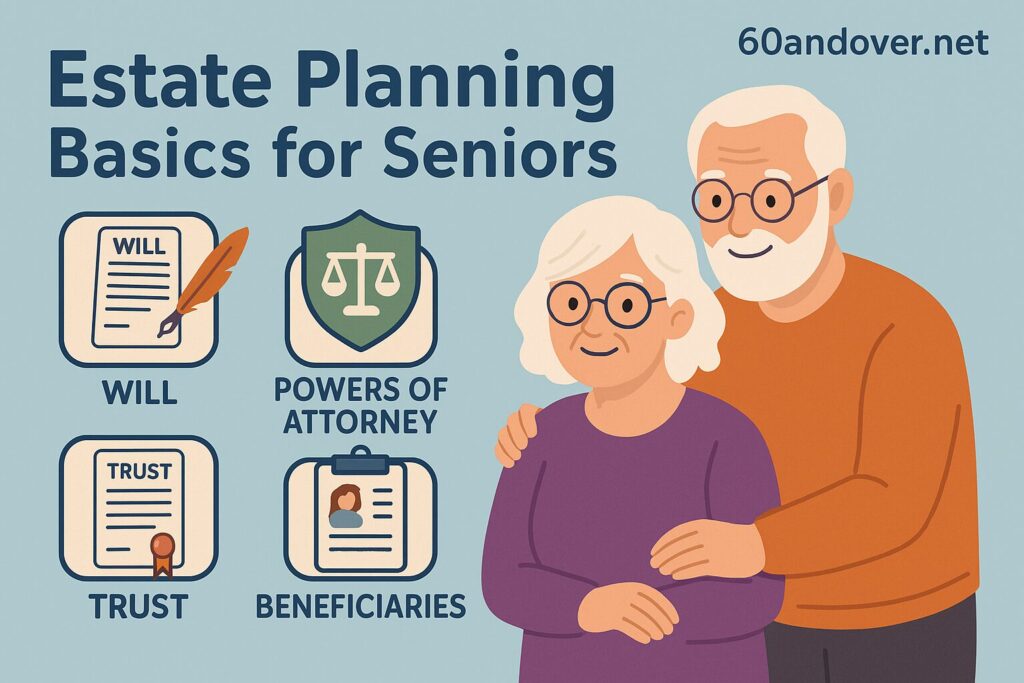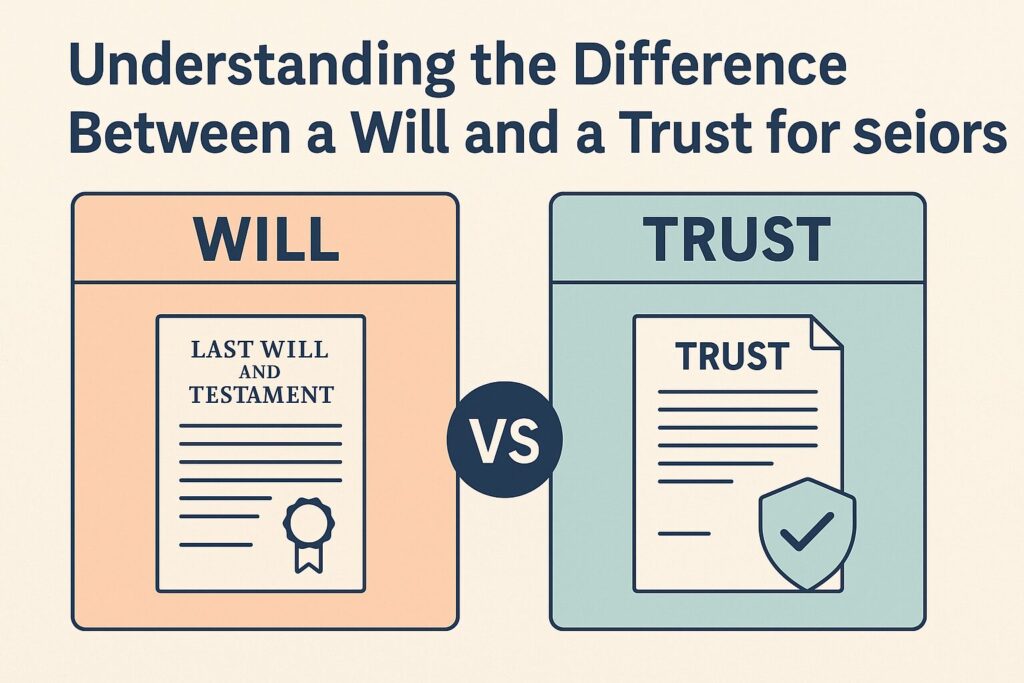Financial scams targeting seniors have become increasingly common—and sophisticated. According to the Federal Trade Commission (FTC), millions of older adults lose billions of dollars each year to scams designed specifically to exploit their trust and vulnerability.
If you’re over 60, understanding these scams and how to recognize them can help you protect your savings and peace of mind. This straightforward guide explains the most common senior scams, how to spot red flags, and what you can do to stay safe.
Why Seniors Are Targeted by Scammers
Unfortunately, older adults are often targeted because scammers believe they’re:
- More trusting and respectful of authority figures.
- Less likely to report fraud due to embarrassment.
- Often financially stable, making them attractive targets.
- Less familiar with modern technology, making them more susceptible to tech-related scams.
However, knowledge is power. Understanding how these scams work is your best defense.
Common Financial Scams Against Seniors (and How to Recognize Them)
1. The Grandparent Scam
In this scheme, a scammer calls posing as your grandchild in distress, urgently asking for money. They might say they’re in trouble, stranded, or need immediate medical assistance.
Red flags:
- Pressure to act quickly and secretly.
- Requests for money via wire transfers, gift cards, or cash apps.
2. Medicare and Health Insurance Fraud
Scammers pose as Medicare representatives, asking for your personal details, claiming they need to “update your account” or “verify information.”
Red flags:
- Unsolicited calls requesting your Medicare number or Social Security number.
- Offers of free medical equipment or services you didn’t request.
3. IRS or Government Imposter Scams
Someone claiming to be from the IRS or another government agency calls and demands immediate payment for “unpaid taxes” or fines.
Red flags:
- Threats of arrest, lawsuits, or other frightening consequences.
- Demands immediate payment by unusual methods like gift cards or cryptocurrency.
4. Tech Support Scams
You receive a call or pop-up claiming your computer is infected. They offer to fix the issue remotely but actually steal personal or financial information.
Red flags:
- Unsolicited calls from “Microsoft” or other tech companies.
- Demands remote access to your computer.
5. Lottery and Prize Scams
You’re told you’ve won a prize or lottery—but must first pay fees or taxes to collect your winnings.
Red flags:
- You didn’t enter any contest.
- Required to pay money upfront to claim a prize.
Practical Steps to Protect Yourself
You can greatly reduce your risk by taking a few simple precautions:
- Never provide personal or financial information over the phone or email unless you initiated the contact.
- Slow down and ask questions. Scammers thrive on urgency. Take your time to verify the details independently.
- Don’t trust caller ID. Scammers can easily fake phone numbers. If unsure, hang up and call back the official number listed on trusted websites or official documents.
- Discuss unusual requests with someone you trust, like a family member, friend, or advisor, before responding.
Technology Safety Tips
Scammers use technology, but you can too. Here’s how to stay safe online:
- Install trusted antivirus software on your devices.
- Update software regularly to protect against the latest threats.
- Create strong, unique passwords for each online account and store them securely.
- Never click on links in emails or texts from unknown senders. Instead, visit websites directly through your browser.
What to Do if You’re a Victim of a Scam
If you suspect you’ve been targeted or scammed, don’t panic. Act quickly:
- Contact your bank or credit card company to freeze accounts and report unauthorized transactions.
- Report the scam immediately to the Federal Trade Commission (FTC) at ftc.gov/complaint.
- Inform your local police department, especially if money has been taken.
Don’t let embarrassment prevent you from taking action—scammers count on silence.
Resources for Reporting and Support
Use these trusted resources to report fraud and get support:
- Federal Trade Commission (FTC): ftc.gov
- AARP Fraud Watch Network: aarp.org/fraudwatchnetwork
- Social Security Fraud Hotline: 1-800-269-0271
- Medicare Fraud Hotline: 1-800-MEDICARE (1-800-633-4227)
These resources offer guidance and can help stop scammers from targeting others.
FAQs About Financial Scams and Seniors
Q: How do scammers typically contact seniors?
A: Scammers use phone calls, emails, texts, and even social media. Phone calls remain the most common method.
Q: Are seniors the only ones at risk for these scams?
A: No, but seniors are frequently targeted because scammers perceive them as vulnerable. Everyone should stay vigilant.
Q: Is there any real government agency that demands immediate payment over the phone?
A: Absolutely not. Real government agencies never demand immediate payment, especially through gift cards or cryptocurrency.
Final Thoughts: Empower Yourself by Staying Informed
Being targeted by scammers can feel intimidating, but knowledge and awareness are your strongest tools. Share what you’ve learned here with friends, family, and community members. Staying informed and vigilant means you stay in control.
Your financial security and peace of mind are worth protecting—now and always.
Next Step:
Continue empowering yourself financially by reading our main guide: Smart Money Moves After 60: A Guide to Financial Security and Peace of Mind.





